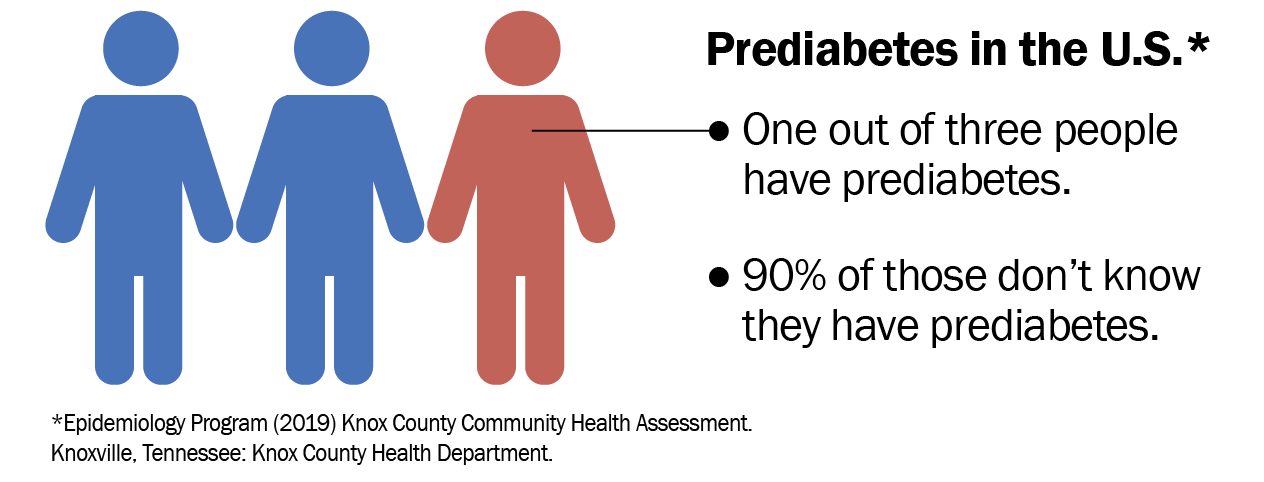Don’t let the “pre” fool you. Prediabetes is a serious health condition. People with prediabetes have higher blood sugar than normal, but not high enough yet for a diabetes diagnosis.
Prediabetes is a condition when a person has difficulty using the insulin produced by the body. This causes blood sugars to be slightly above normal. The CDC estimates more than 1 in 3 Americans have prediabetes, but 9 out of 10 are not diagnosed. If untreated, 15-30% of people with Prediabetes will develop type 2 diabetes within 5 years.

If you are worried you may have prediabetes or be at risk for diabetes, there are several resources for you to use. First, take the Diabetes Risk Assessment Test, here. If you are at risk for type 2 diabetes, visit this website find a Diabetes Prevention Program near you: https://www.cdc.gov/diabetes/prevention/find-a-program.html



Click here to leave a comment or concern.